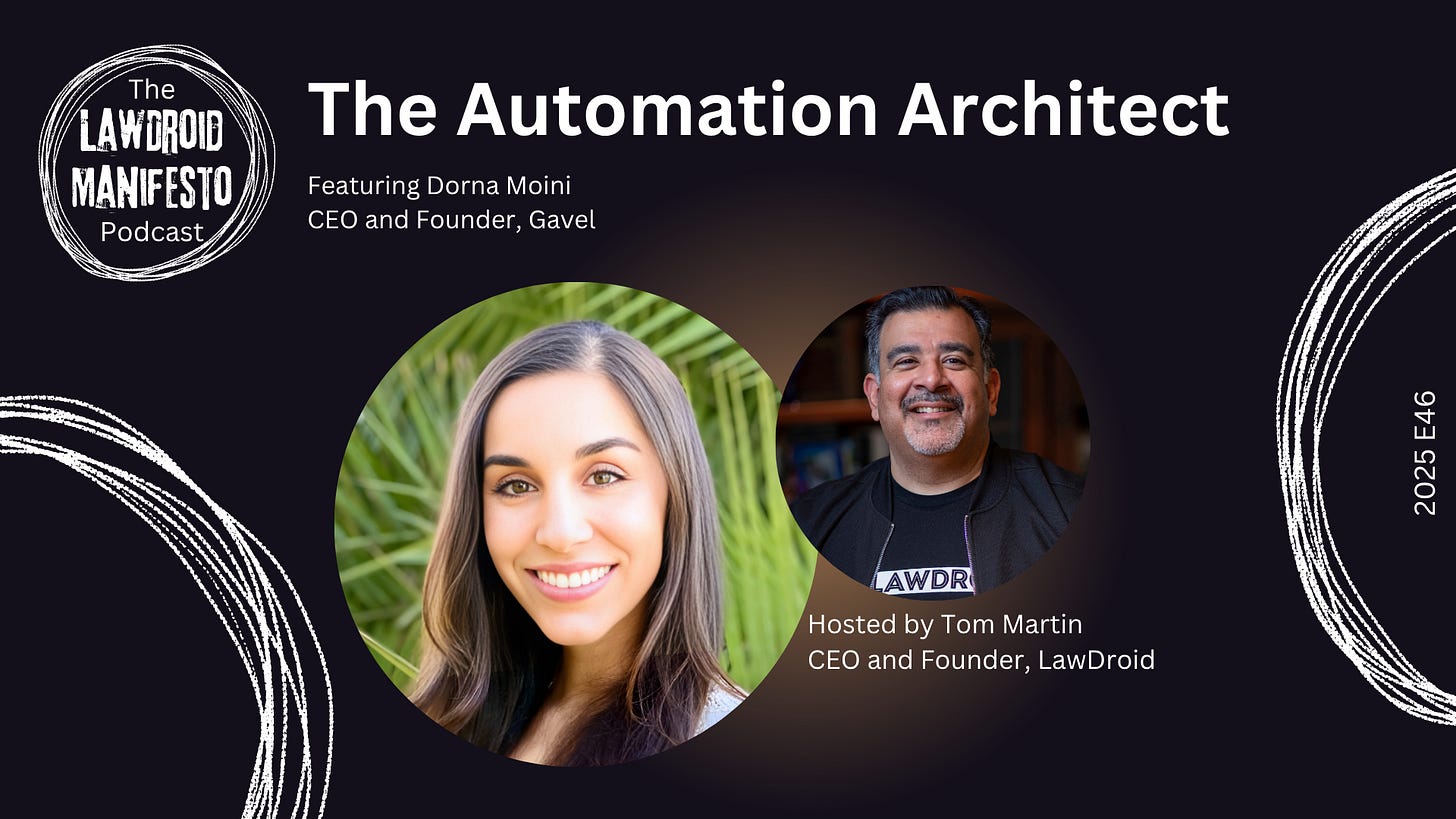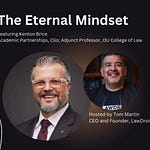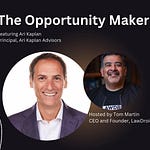Hey there Legal Rebels! 👋 I’m excited to share with you the 46th episode of the 2025 season of the LawDroid Manifesto podcast, where I will be continuing to interview key legal innovators to learn how they do what they do. I think you’re going to enjoy this one!
If you want to understand how to transform your legal practice into a scalable legal product and learn from someone who’s building the infrastructure powering some of the most innovative legal tech companies, you need to listen to this episode. Dorna Moini is at the forefront of legal automation and has created technology that serves as the backbone for major DIY legal platforms and legal aid organizations nationwide.
Building the Infrastructure That Powers Legal Innovation
Join me as I interview Dorna Moini, founder and CEO of Gavel, the end-to-end automation platform transforming how lawyers deliver legal services.
In this insightful podcast episode, Dorna shares her remarkable journey from growing up in Orange County to practicing at big law firms, and ultimately founding Gavel, a company that has become the white-labeled backbone for some of the most recognizable names in legal tech. She dives deep into how lawyers can transform their practices from traditional service delivery to scalable legal products, enabling them to work from anywhere while serving more clients efficiently.
Her stories and insights reveal the practical realities of building legal tech, from her early days at Georgetown’s Iron Tech Law Institute working on access to justice projects, to developing sophisticated automation tools that now serve over 100 law schools worldwide. This episode is a must-watch for anyone interested in legal automation, access to justice, and the future of legal service delivery.
The Skinny
Dorna Moini, founder and CEO of Gavel, shares her journey from practicing at major law firms to building one of legal tech’s most essential infrastructure platforms. Growing up in Orange County with Iranian immigrant parents who valued education and persistence, Dorna initially pursued political science at NYU before pivoting to law. After experiences at firms like Latham & Watkins and Simpson Thacher, she discovered her passion for legal technology while working on access to justice initiatives at Georgetown’s Iron Tech Law Institute. This led her to create Gavel, an end-to-end automation platform that now powers major legal tech companies like Hello Divorce, Just Tech, and Arkansas Legal Now, while also serving legal aid organizations nationwide. Throughout the conversation, Dorna emphasizes how automation enables lawyers to transform their practices into scalable legal products, with some customers literally working from beaches while their automated systems handle document generation and client intake. With two young children and a rapidly growing company, she maintains her focus through rigorous time tracking and prioritization, continuously assessing whether she’s focusing on the highest and best use of her time.
Key Takeaways:
Gavel serves as the white-labeled backbone for major legal tech platforms, enabling companies to build client-facing services without hiring engineering teams
Lawyers are using Gavel to transform traditional legal services into scalable legal products, allowing them to work from anywhere while serving more clients
Dorna’s path to legal tech came through access to justice work at Georgetown’s Iron Tech Law Institute, where she saw firsthand the need for automation in serving underserved populations
Her experience at big law firms taught her the importance of leveraging technology, as she observed partners who built specialized expertise becoming more valuable over time
The latest Gavel innovation, “Gavel Exec,” uses AI to help lawyers draft better contracts by analyzing their historical documents and firm knowledge to suggest appropriate clauses
Process and time tracking are essential for managing multiple priorities—Dorna categorizes every minute of her day and reviews weekly where she could have delegated or used time more efficiently
Over 100 law schools worldwide now use Gavel to train future lawyers on automation and modern legal practice
Customer stories, particularly from legal aid organizations making impact at scale, provide the motivation that makes the work worthwhile
The distinction between “legal services” and “legal products” represents a fundamental shift in how lawyers can deliver value
Notable Quotes:
“Our goal is to help you get everything from the inputting of the data to the generation of the documents to potentially billing if you’re billing through an online portal all the way through some of the things that happen for the generation of that first draft. We also have some AI features that help with that piece. So that’s why we call ourselves the end-to-end automation suite for lawyers.” - Dorna Moini (01:54-02:15)
“They put in a lot of work into building these amazing systems and then they’re able to work from anywhere they want because they basically become software founders of their own right. They’ve turned what is a legal service into a legal product.” - Dorna Moini (03:22-03:36)
“I think as lawyers, it’s great to know a lot of stuff and to have that general knowledge. But when it comes to your career, I think you want to be known as the best at something. And so I didn’t want to just be really good at all types of law. I wanted to be the best at something.” - Dorna Moini (12:18-12:34)
“I was the person who was also building up their knowledge base in their brain by working on a lot of that kind of work. And then what I saw was the partners that were most successful as they got older were the ones that had built up that huge knowledge base and they were now very leveraged because they had so much expertise.” - Dorna Moini (14:50-15:07)
“The main thing that I was working on was, how do we automate forms? And that started sort of on Word documents. And that was where I first learned, I guess, legal automation. And there were very few tools in the space at the time.” - Dorna Moini (18:30-18:44)
“I do think it’s really important for lawyers to be able to do all of this themselves now. We’re at a stage where a lot of no-code tools like Gavel exist. So I do think that is a really important skill that lawyers should develop, understanding how to automate what they’re doing.” - Dorna Moini (23:08-23:25)
“One thing I definitely believe is that when you’re building something, you should be trying to solve a problem that you yourself have experienced or that you yourself understand very deeply.” - Dorna Moini (24:24-24:36)
“We started by focusing on the legal aid space because they were the ones that needed it the most. They were coming to us. They wanted a solution because they were underserved. And so we said, let’s start there, let’s build a tool for them.” - Dorna Moini (27:01-27:14)
“What Gavel Exec does is it is trained on your historical documents and historical information, as well as some of the knowledge base information of your firm, and is able to make suggestions on what language you might want to include in a new document that you’re drafting, pulling from language that you would typically use.” - Dorna Moini (37:35-37:53)
“I don’t have a minute of my day that is not already allocated to what I’m going to do. And obviously there’s always fires and things that come up that make you have to change. But for the most part, I know what are my priorities? What am I going to do next in any particular day?” - Dorna Moini (38:57-39:11)
“I track my time and I categorize it into different groups. So it’s like, is it one-on-one meetings or internal meetings or company strategy or product or sales or marketing? And I keep very close eye on that. And every week at the end of the week, I look at where I’ve spent my time.” - Dorna Moini (39:14-39:32)
“For me, it’s really the customer stories. We can look at a more statistical level on what’s happening with our customers, and that’s really powerful. How many more customers are they able to serve? How much of a dent are they making in the work that they want to do? But the piece that really gets me re-energized is those very specific stories.” - Dorna Moini (40:52-41:21)
Clips
We Built TurboTax for DV Law
77% Don’t Hire a Lawyer - Here’s Why
How Tech Expanded a Legal Clinic 11x
Why Dorna Chose Human Rights Law
Dorna’s journey illustrates how the most impactful legal tech often comes from deeply understanding the problems lawyers face. From her early exposure to law firm inefficiencies to her hands-on work in access to justice, she built Gavel not as a theoretical solution but as practical infrastructure addressing real needs. Her emphasis on transforming legal services into legal products represents a fundamental reconceptualization of legal practice, one where lawyers leverage technology to scale their expertise rather than simply trading time for money.
What stands out most is how Gavel has become invisible infrastructure powering visible innovation. Major legal tech brands that consumers recognize are built on Gavel’s backbone, enabling entrepreneurs to focus on their unique value proposition rather than rebuilding document automation from scratch. This approach has democratized legal tech entrepreneurship, allowing solo practitioners and small firms to compete with much larger organizations.
Closing Thoughts
As someone who’s been building legal tech for years, I find Dorna’s story particularly inspiring because it demonstrates the power of solving real problems you’ve personally experienced. She didn’t start with a grand vision to transform legal services; she started by trying to automate forms for legal aid organizations and built from there based on actual user needs.
What excites me most is seeing how Gavel has become essential infrastructure for legal innovation. Just as Amazon Web Services enabled countless startups by providing reliable cloud infrastructure, Gavel enables legal entrepreneurs to build sophisticated automation without starting from scratch. This democratization of legal tech development means we’re seeing innovation from unexpected places, solo practitioners creating scalable practices, legal aid organizations serving more clients, and new legal tech companies launching without massive engineering teams.
For our Legal Rebels community, Dorna’s journey offers several important lessons. First, specialization matters, becoming the best at something specific rather than being generally good at everything. Second, understanding problems deeply before building solutions leads to better products. Third, success requires ruthless prioritization and clear processes, especially when balancing multiple responsibilities. And finally, the most rewarding work often comes from seeing the specific impact you’re making, not just the aggregate statistics.
The future of legal practice belongs to those who can leverage automation to deliver more value to more people. Dorna and Gavel are building the infrastructure that makes that future possible, one automated workflow at a time.












